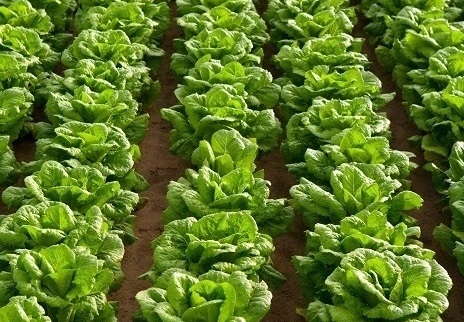Charles Veys | Fotenix
Inspecting crops using
3-D multispectral analysis
When it comes to checking crops for potential issues, there are significant challenges relating to scale. Traditional surveillance methods include physical checks by walking the fields and taking samples, but the agronomists on the ground can’t cover the whole farm, nor could the farmer afford to pay them to cover every square metre. An alternative to this is using satellite technology to spot issues from a height. However, in the UK this is only as good as the weather, with cloud cover being a frequent and immovable obstacle.

"The pitch mentoring was so helpful. We learned to dump the science and communicate the benefits of the product because people care about what it does, not what it is."
Inspired to find a solution to these difficulties, Charles Veys is developing an online three-dimensional multispectral crop analysis tool. It aims to solve some of the challenges facing producers and agronomists by allowing them to identify plant characteristics earlier in the season and take better informed timely action. The idea for this product came about from Charles’s research within the e-Agri Sensors Centre at the University of Manchester.
Exploring entrepreneurship and commercialisation
Charles’s background is in electronics, and he honed his practical and technical skills during his master’s degree. It was a further year spent working on an agri-engineering group project which kicked off the basis of his PhD - using cameras on the back of tractors to look at plants.
Charles has always had an interest in robotics. During his studies, he moved into sensing which then took him into imaging. He says that at first, he was a little reluctant to go into agri-tech due to his preconceptions of working with old farm machinery. However, after learning more about the high science in this area and discovering opportunities to work with big agri-food companies such as Syngenta, Charles soon changed his opinion.
Made up of fellow students from the University of Manchester in electronics as well as a materials engineer, an aeronautical mechanic and a post-doc electro-chemist, Charles’s team was successful in securing a place at the 2017 Engineering YES competition.
For Charles, his goal for YES was to gain some commercial skills and to explore entrepreneurship. The team decided to explore the hypothetical idea of using drones to carry cameras which would capture data on the field. The creative license afforded to them by the YES process gave the team the freedom to draw up a business plan and finances that was separate from the work being undertaken by their university. The crop imaging idea was very well received, and after being selected to go to the YES final, Team Fotenix finished as runners up.
Making Fotenix a revenue-generating machine
Reflecting on his experience, Charles cites watching an example pitch from a space company as very helpful and highlighted to him as the area they needed to work on the most. He was also lacking financial experience and found the workshops gave him the knowledge he needed to start thinking about commercialising the Fotenix idea.
Charles now works on Fotenix full-time and is busy raising money for the next round to take the business from proof of concept to a revenue-generating machine. Charles uses the specific skills (and some of his old spreadsheets!) developed at the YES workshop, from pitching and presenting his business idea to breaking down the finances.